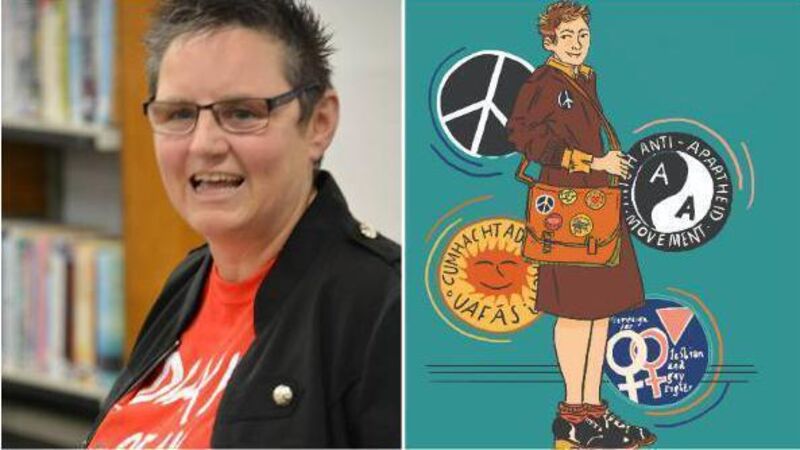Orla Egan’s graphic memoir recalls activist days in Cork

Orla Egan, Diary of an Activist
Cork social activist Orla Egan has created a record of the left-wing movement in the city during the 80s in an attractive illustrated graphic memoir, Diary of An Activist, published by Cork City Libraries.
Egan, the youngest of six, became a vegetarian at the age of twelve, influenced by a sibling. Also at that young age in 1978, she joined the Irish Anti Nuclear Movement in response to government plans to build a nuclear power plant at Carnsore Point in Co Wexford.




